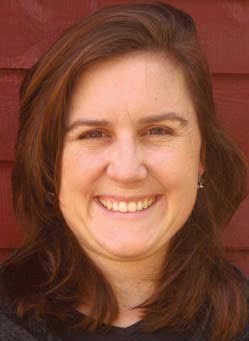Northern Woodlands was founded more than 20 years ago, and the idea back then, as I understand it, was to focus on the forests and forest culture of Vermont. In time, the state boundaries became confining, and we expanded our reach to include northern New England and New York. There were practical reasons for this, sure, but it was also just an organic thing to do. The trees and the animals don’t acknowledge state boundaries. Pulp trucks barrel through Vermont and New Hampshire to Maine. There are unique wrinkles in the various states, but by and large the forest management and conservation issues are similar.
As the years go by, we find ourselves increasingly drawn southward. Again there are practical reasons – an increasing number of our subscribers live in the “lower” New England states, and we’ve been adding readers in Pennsylvania, as well. A number of our writers, photographers, advertisers, and board members hail from southern New England; this year’s annual board and staff retreat will take place in northwestern Connecticut, at the Great Mountain Forest.
Here, too, the expansion of our geographic reach just makes sense. As noted in Harvard Forest’s 2010 Wildlands and Woodlands report, while forest cover is declining in every state in New England, development pressures are greatest in the south. For a nonprofit that promotes land conservation and forest stewardship in the Northeast, the states of Connecticut, Massachusetts, and Rhode Island present both the front lines of the urban-rural interface, and real-world models for keeping forests intact, even as areas become more densely populated.
That’s why I’m gratified by our recent opportunity to work with the New England Forestry Foundation (NEFF). Prompted by the Wildlands and Woodlands vision of large-scale forestland conservation, NEFF has launched an ambitious landowner outreach program in northeastern Connecticut and south-central Massachusetts. Through intensive information gathering, testing, and analysis, it will explore what methods are most effective for promoting a forest stewardship ethic and forest conservation. From this learning, NEFF plans to create a model that is replicable across New England.
As part of this program, on NEFF’s behalf, Northern Woodlands recently completed two new versions of our Place You Call Home landowner guides, focused on Connecticut and Massachusetts. These 80-page publications are designed to appeal to a variety of interests, from bird nest identification to practical advice on state tax regulations and estate planning. NEFF will distribute the guides to landowners in its program area, and they’re also available in downloadable form on the NEFF website as well as under “programs” on the Northern Woodlands website.


